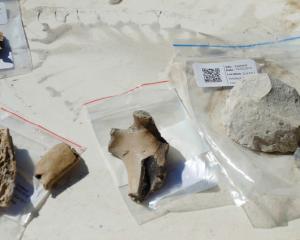Nine University of Otago PhD students shed new light on a host of tantalising research topics during the latest annual finals of the university's Three Minute Thesis Competition at the university's Dunedin campus this week.
The students proved masters of necessity, packing complex concepts from their research into the strictly enforced presentation time, and getting in quite a few jokes along the way.
About 150 people attended, and many others watched remotely via the internet, including interested viewers at the university's Christchurch and Wellington campuses.
Hongjun Shi, from the Wellington campus, said his research to detect cancer earlier by identifying new biomarkers in blood had proved "promising".
He hoped such a test would eventually help save thousands of lives.
The latest contest proved third time lucky for Jack Rivers, a pharmacology and toxicology student, who became the overall winner, after competing in the two previous Otago annual events.
Using opium had become illegal in 1907, but medically useful drugs, such as morphine, had since been developed from it, he said.
Cannabis was also illegal and its use was linked to several adverse health outcomes, but carefully developed cannabinoid drugs could have significant medical benefits, including by reducing some immune response problems, he said.
His animal research showed a cannabinoid drug had reduced the kind of inflammatory immune response in the brain which caused extra damage after a stroke, he said.
Mr Rivers won a $2000 study grant and a paid trip to Perth to represent Otago University at an Australasian Three Minute Thesis Competition on September 29.
Kirsten Walsh (philosophy), who discussed Newton's use of experiment and mathematics, took second place and Balclutha school teacher Jordana Norrish, who focused on helping youngsters grasp "the language of mathematics", was third.
Carla Jellum discussed travel to the Antarctic, and Yanwei Tan, Azrina Md Ralib, and Jonathan Foo were other finalists.
Graduate research services director Dr Charles Tustin said the competition was the last event in an "extremely successful" Graduate Research Month, celebrating the achievements of Otago postgraduate students.
• Contest judges were Otago vice-chancellor Prof Harlene Hayne, chemistry head Prof Lyall Hanton and economics Associate Prof Paul Hansen.









